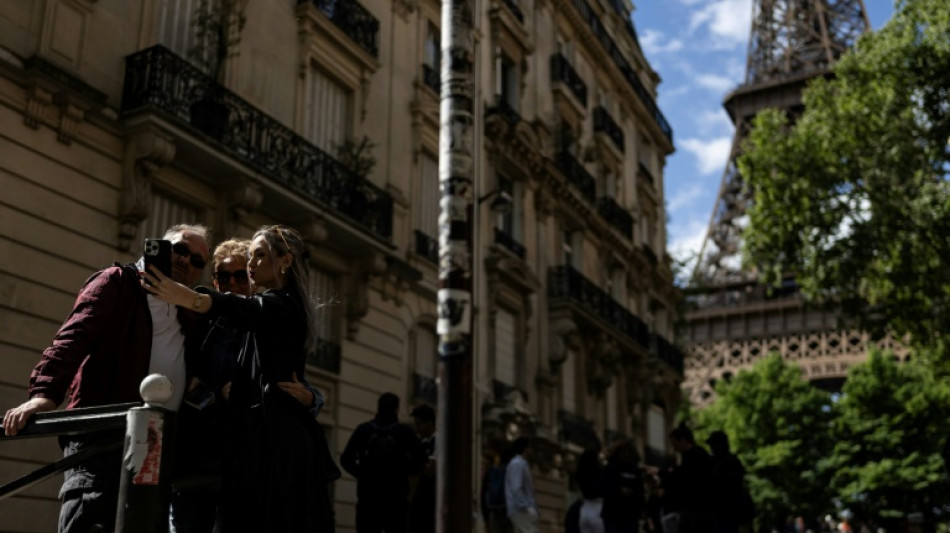
-
 Yesavage fairytale carries Blue Jays to World Series brink
Yesavage fairytale carries Blue Jays to World Series brink
-
Bank of Japan keeps interest rates unchanged

-
 Impoverished Filipinos forge a life among the tombstones
Impoverished Filipinos forge a life among the tombstones
-
Jokic posts fourth straight triple-double as Nuggets rout Pelicans

-
 UN calls for end to Sudan siege after mass hospital killings
UN calls for end to Sudan siege after mass hospital killings
-
Teenage Australian cricketer dies after being hit by ball

-
 As Russia advances on Kupiansk, Ukrainians fear second occupation
As Russia advances on Kupiansk, Ukrainians fear second occupation
-
Trade truce in balance as Trump meets 'tough negotiator' Xi

-
 China to send youngest astronaut, mice on space mission this week
China to send youngest astronaut, mice on space mission this week
-
Yesavage gem carries Blue Jays to brink of World Series as Dodgers downed

-
 With inflation under control, ECB to hold rates steady again
With inflation under control, ECB to hold rates steady again
-
Asia stocks muted with all eyes on Trump-Xi meeting

-
 Personal tipping points: Four people share their climate journeys
Personal tipping points: Four people share their climate journeys
-
Moto3 rider Dettwiler 'no longer critical' after crash: family

-
 US economy in the dark as government shutdown cuts off crucial data
US economy in the dark as government shutdown cuts off crucial data
-
Trump orders nuclear testing resumption ahead of Xi talks

-
 'Utter madness': NZ farmers agree dairy sale to French group
'Utter madness': NZ farmers agree dairy sale to French group
-
Samsung posts 32% profit rise on-year in third quarter

-
 30 years after cliffhanger vote, Quebec separatists voice hope for independence
30 years after cliffhanger vote, Quebec separatists voice hope for independence
-
Taxes, labor laws, pensions: what Milei wants to do next

-
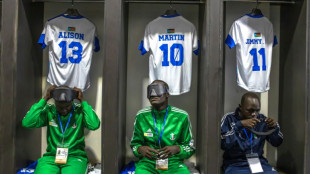 South Sudan's blind football team dreams of Paralympic glory
South Sudan's blind football team dreams of Paralympic glory
-
US says 4 killed in new strike on alleged Pacific drug boat
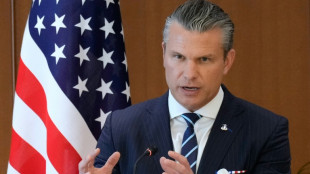
-
 What we do and don't know about Rio's deadly police raid
What we do and don't know about Rio's deadly police raid
-
'They slit my son's throat' says mother of teen killed in Rio police raid

-
 Arteta hails 'special' Dowman after 15-year-old makes historic Arsenal start
Arteta hails 'special' Dowman after 15-year-old makes historic Arsenal start
-
Google parent Alphabet posts first $100 bn quarter as AI fuels growth
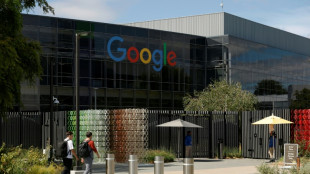
-
 Underwater 'human habitat' aims to allow researchers to make weeklong dives
Underwater 'human habitat' aims to allow researchers to make weeklong dives
-
Maresca slams Delap for 'stupid' red card in Chelsea win at Wolves

-
 'Non-interventionist' Trump flexes muscles in Latin America
'Non-interventionist' Trump flexes muscles in Latin America
-
Slot defends League Cup selection despite not meeting 'Liverpool standards'

-
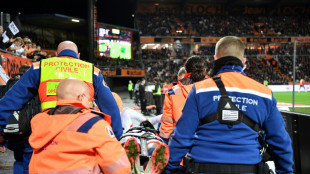 'Poor' PSG retain Ligue 1 lead despite stalemate and Doue injury
'Poor' PSG retain Ligue 1 lead despite stalemate and Doue injury
-
Liverpool crisis mounts after League Cup exit against Palace

-
 Kane scores twice as Bayern set European wins record
Kane scores twice as Bayern set European wins record
-
Radio Free Asia suspends operations after Trump cuts and shutdown

-
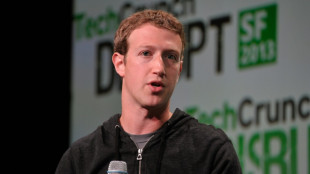 Meta shares sink as $16 bn US tax charge tanks profit
Meta shares sink as $16 bn US tax charge tanks profit
-
Dollar rises after Fed chair says December rate cut not a given
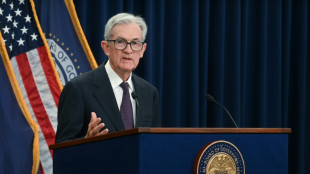
-
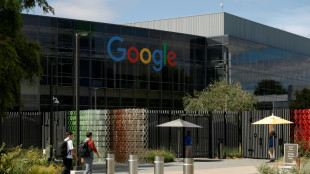 Google parent Alphabet posts first $100 bn quarter as AI drives growth
Google parent Alphabet posts first $100 bn quarter as AI drives growth
-
Rob Jetten: ex-athlete setting the pace in Dutch politics
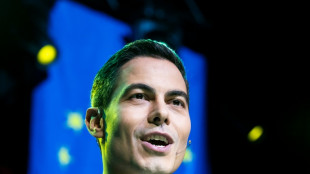
-
 Juve bounce back after Tudor sacking as Roma keep pace with leaders Napoli
Juve bounce back after Tudor sacking as Roma keep pace with leaders Napoli
-
Favorite Sovereignty scratched from Breeders' Cup Classic after fever

-
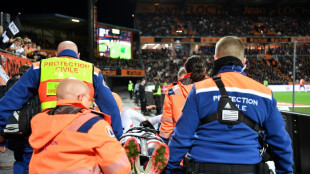 Doue injured as PSG held at Lorient in Ligue 1
Doue injured as PSG held at Lorient in Ligue 1
-
Leverkusen win late in German Cup, Stuttgart progress

-
 Jihadist fuel blockade makes life a struggle in Mali's capital
Jihadist fuel blockade makes life a struggle in Mali's capital
-
Uber plans San Francisco robotaxis in Waymo challenge

-
 Paramilitary chief vows united Sudan as his forces are accused of mass killings
Paramilitary chief vows united Sudan as his forces are accused of mass killings
-
Trump, Xi to meet seeking truce in damaging trade war

-
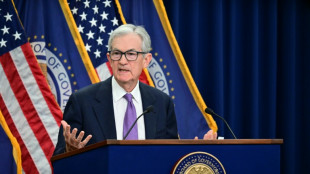 Divided US Fed backs second quarter-point rate cut of 2025
Divided US Fed backs second quarter-point rate cut of 2025
-
'Amazing' feeling for Rees-Zammit on Wales return after NFL adventure

-
 'Cruel' police raids help, not hinder, Rio's criminal gangs: expert
'Cruel' police raids help, not hinder, Rio's criminal gangs: expert
-
S. African president eyes better US tariff deal 'soon'
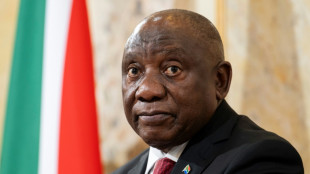

AI tool uses selfies to predict biological age and cancer survival
Doctors often start exams with the so-called "eyeball test" -- a snap judgment about whether the patient appears older or younger than their age, which can influence key medical decisions.
That intuitive assessment may soon get an AI upgrade.
FaceAge, a deep learning algorithm described Thursday in The Lancet Digital Health, converts a simple headshot into a number that more accurately reflects a person's biological age rather than the birthday on their chart.
Trained on tens of thousands of photographs, it pegged cancer patients on average as biologically five years older than healthy peers. The study's authors say it could help doctors decide who can safely tolerate punishing treatments, and who might fare better with a gentler approach.
"We hypothesize that FaceAge could be used as a biomarker in cancer care to quantify a patient's biological age and help a doctor make these tough decisions," said co-senior author Raymond Mak, an oncologist at Mass Brigham Health, a Harvard-affiliated health system in Boston.
Consider two hypothetical patients: a spry 75‑year‑old whose biological age clocks in at 65, and a frail 60‑year‑old whose biology reads 70. Aggressive radiation might be appropriate for the former but risky for the latter.
The same logic could help guide decisions about heart surgery, hip replacements or end-of-life care.
- Sharper lens on frailty -
Growing evidence shows humans age at different rates, shaped by genes, stress, exercise, and habits like smoking or drinking. While pricey genetic tests can reveal how DNA wears over time, FaceAge promises insight using only a selfie.
The model was trained on 58,851 portraits of presumed-healthy adults over 60, culled from public datasets.
It was then tested on 6,196 cancer patients treated in the United States and the Netherlands, using photos snapped just before radiotherapy. Patients with malignancies looked on average 4.79 years older biologically than their chronological age.
Among cancer patients, a higher FaceAge score strongly predicted worse survival -- even after accounting for actual age, sex, and tumor type -- and the hazard rose steeply for anyone whose biological reading tipped past 85.
Intriguingly, FaceAge appears to weigh the signs of aging differently than humans do. For example, being gray-haired or balding matters less than subtle changes in facial muscle tone.
FaceAge boosted doctors' accuracy, too. Eight physicians were asked to examine headshots of terminal cancer patients and guess who would die within six months. Their success rate barely beat chance; with FaceAge data in hand, predictions improved sharply.
The model even affirmed a favorite internet meme, estimating actor Paul Rudd's biological age as 43 in a photo taken when he was 50.
- Bias and ethics guardrails -
AI tools have faced scrutiny for under‑serving non-white people. Mak said preliminary checks revealed no significant racial bias in FaceAge's predictions, but the group is training a second‑generation model on 20,000 patients.
They're also probing how factors like makeup, cosmetic surgery or room lighting variations could fool the system.
Ethics debates loom large. An AI that can read biological age from a selfie could prove a boon for clinicians, but also tempting for life insurers or employers seeking to gauge risk.
"It is for sure something that needs attention, to assure that these technologies are used only in the benefit for the patient," said Hugo Aerts, the study's co-lead who directs MGB's AI in medicine program.
Another dilemma: What happens when the mirror talks back? Learning that your body is biologically older than you thought may spur healthy changes -- or sow anxiety.
The researchers are planning to open a public-facing FaceAge portal where people can upload their own pictures to enroll in a research study to further validate the algorithm. Commercial versions aimed at clinicians may follow, but only after more validation.
B.Wyler--VB




